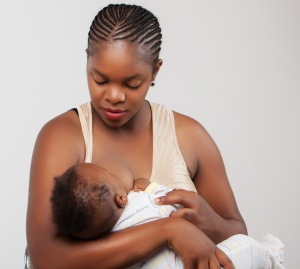
Professor Nigel Field from the UCL Institute for Global Health discussed the gut microbiome at the Festival of Genomics & Biodata 2025. The complex ecosystem of bacteria residing in the human digestive tract, plays a crucial role in early-life development, influencing not only physical health but also long-term mental well-being. Research is increasingly focusing on large-scale longitudinal studies to establish a clear cause-and-effect relationship between early-life microbiome composition and mental health outcomes.
The role of infant nutrition and gut microbiome development
The composition of an infant's gut microbiome is significantly shaped by early diet, particularly breast milk. Studies, such as the C-GULL study, are investigating how the bacteria influenced by milk intake contribute to brain development. By analysing stool samples from infants and their mothers, as well as breastmilk samples, researchers aim to determine how neonatal diet affects gut colonisation and, ultimately, mental health outcomes.
Large-scale longitudinal studies for comprehensive insights
The C-GULL study utilises a large sample size and a longitudinal design, making it possible to distinguish causation from correlation. In addition to microbiome analysis, researchers are collecting dietary and blood sample data to enable a multi-omics and integrated approach. Given that robust clinical outcomes related to mental health may take a decade or more to manifest, studies of this kind are critical for identifying long-term impacts.
Microbiome colonisation at birth: a critical window
The BabyBiome study has highlighted the significant influence of external factors, rather than genetics, on gut microbiome composition. Research shows that an infant's gut microbiome is shaped more by environmental exposure than by inherited genetic factors, and that birth is a crucial moment for microbiome colonisation.
Infants delivered by caesarean section (C-section) experience delayed colonisation compared to those born vaginally. While vaginal birth is associated with a higher diversity of beneficial bacteria early on, the long-term health implications are more nuanced. Bifidobacteria, considered "pioneer colonisers," are crucial in stabilising the gut microbiome. However, some infants, particularly those exposed to antibiotics during labour or born via C-section, show a dominance of Enterococcus faecalis (E. faecalis), which is associated with greater instability in gut microbial composition.
Microbial community states and their role in health
Three primary microbial colonisation patterns have been identified, with bifidobacterial-dominated states being the most stable. Infants colonised by Bifidobacterium breve, for example, exhibit greater resistance to pathogens due to their ability to metabolise fucosyllactose, a key glycan in breastmilk. By contrast, those with E. faecalis-dominated microbiomes have different antimicrobial resistance gene profiles and virulence factors, potentially predisposing them to health risks.
Microbiome and early-life health outcomes
One of the most pressing questions researchers are investigating is whether neonatal gut microbiota composition is associated with the risk of respiratory infections severe enough to require hospitalisation. By leveraging NHS electronic records, researchers have been able to longitudinally track infant health outcomes in relation to their microbiome composition.
In a cohort of 1,000 infants with well-classified microbiome data, 7.3% experienced at least one hospital admission for viral respiratory tract infections within their first year. Notably, clustering microbiome colonisation patterns revealed that a specific third cluster, prevalent among vaginally born infants with higher microbial diversity, was associated with a reduced risk of hospitalisation.
Interestingly, while higher alpha diversity (greater microbial variety) was linked to a lower likelihood of hospital admission, not all vaginally delivered babies benefited from this effect. This finding challenges the conventional belief that vaginal birth always results in a superior microbiome composition compared to C-section delivery.
The early-life gut microbiome has profound implications for both immediate and long-term health, including mental well-being. Large-scale, longitudinal studies such as C-GULL and BabyBiome provide crucial insights into how birth method, early diet, and microbial colonisation influence lifelong health trajectories. As research continues to develop, understanding the intricate relationships between microbiome composition and mental health could pave the way for early interventions, potentially mitigating risks associated with adverse microbial colonisation patterns in infancy.
